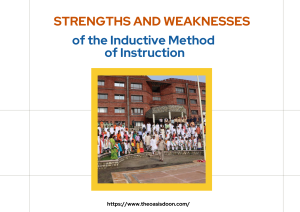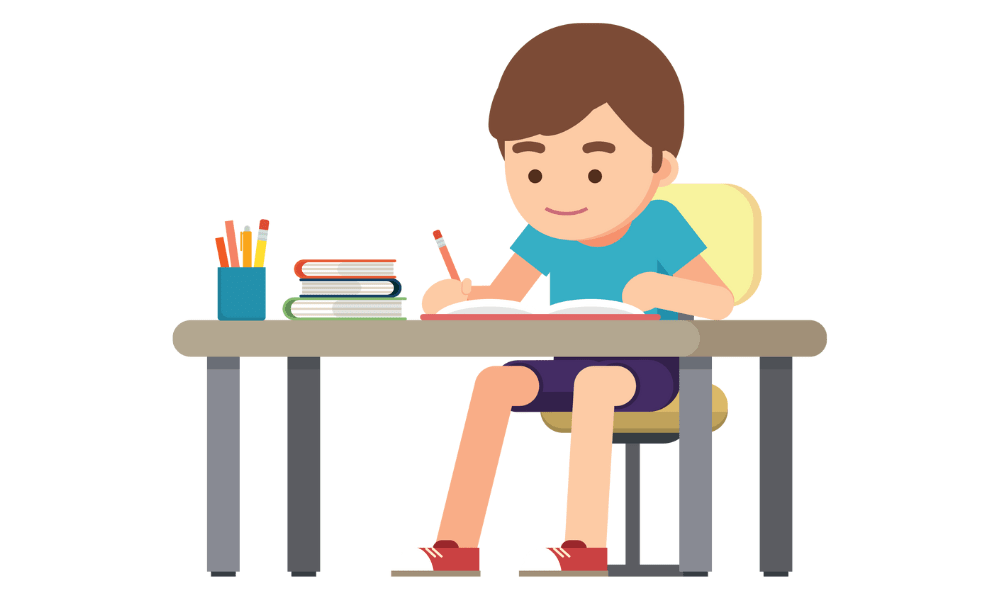
Ever wondered how certain students always manage to be ahead—submitting assignments on time, excelling on tests, and remaining composed under pressure? It’s not always a matter of talent or being smart. Much of their achievement boils down to one simple thing: good habits for students.
Let’s be real, school life isn’t all about schoolwork anymore. With added pressure, shifting classroom settings, and the proliferation of new thinking, students require more than textbooks to thrive. Many boarding schools in India have recognized this shift and are focusing more on life skills and personal development.
They require order, discipline, and a series of solid daily habits. That’s why building good habits for students is now more important than ever.
Why Habits Matter More Than Motivation

Let’s face it—motivation ebbs and flows. Some days you’re excited to study. Other days, binge-watching Netflix seems more appealing. That’s where habits come in. Positive student habits build a consistent framework that operates even when you don’t feel like working. For that reason, forming good habits for students is more effective than relying on willpower alone.
Habits are like background routines you can’t see—once you create them, they operate automatically in the background, smoothing out life and making it easier to manage.
Morning Habits That Set the Tone
 1.Wake Up at a Consistent Time
1.Wake Up at a Consistent Time
A stable wake-up time regulates your energy levels and boosts productivity. You’re less rushed and more prepared for the day.
2.Avoid Screen Time First Thing
Try not to start your day with your phone. Use that first 15–20 minutes to stretch, reflect, or plan. It’s a small shift with big results and one of the easiest good habits for students to start with.
3.Eat a Nutritious Breakfast
You can’t study on an empty stomach. A healthy breakfast powers your brain and keeps you awake during class. Eating well is one of the most overlooked good habits for students.
Getting Your Day Planned Out
1.Create a To-Do List Each Morning
Writing down 3–5 most important tasks relieves stress and keeps your day organized. You’ll also feel satisfied crossing things off.
2.Use a Planner or Electronic Calendar
Schedule homework, assignments, events, and study time. This is essential to prevent last-minute panic. and is essential for building good habits for students that last.
3.Clean Up Your Study Area
Less distractions equal a clean environment. Keep your desk clear and only filled with necessities.
Good Study Habits
1.Stick to a Study ScheduleInstead of cramming the night before, study a little every day. Just 30–45 minutes daily can boost long-term memory and reduce stress—two major benefits of good habits for students.
2.Practice Active Learning Strategies
Don’t read—quiz yourself, teach someone, or create diagrams. These are good habits for students that result in increased comprehension.
3.Set Specific Goals for Each Session
Instead of saying, “I’ll study science,” go for: “I’ll finish Chapter 3 and solve 5 questions.” It’s easier to measure and manage.
Improving Concentration and Minimizing Distractions
 1.Apply the Pomodoro Technique
1.Apply the Pomodoro Technique
Study for 25 minutes, then take a 5-minute break. This method boosts concentration and prevents burnout—two outcomes that align with building good habits for students who want long-term results.
2.Put Your Phone on Silent or Keep it Out of Reach
Let’s be realistic—phones are the largest distraction. Disable notifications or put your phone in another room while studying. Avoiding distractions is one of the must-have good habits for students in the digital age.
Mental and Physical Health Habits
 1 .Sleep for 7–9 Hours Each Night
1 .Sleep for 7–9 Hours Each Night
Sleep enhances memory, concentration, and mood. Cutting sleep short for studying does more harm than good. One of the best good habits for students is simply going to bed on time and waking up refreshed.
2.Remain Physically Active
It could be walking, cycling, or playing a sport; activity makes your brain work better and increases your energy. It’s a core part of any routine involving good habits for students.
3.Consume Brain-Friendly Foods
Snack on fruits, nuts, and whole grains. Avoid too much junk—it drains energy and focus.
Mindset and Emotional Wellness
1.Practice Gratitude Daily
Spend one minute each day noting three things you’re grateful for. It improves mood and builds a positive mindset. Mindset-focused good habits for students are just as crucial as study habits.
2.Learn to Manage Stress
Try deep breathing, meditation, journaling, or even talking it out. Mental health is just as important as grades.
Social and Communication Habits
1.Ask Questions in Class
There’s no silly question. Getting questions answered immediately keeps you on course and enhances understanding.
2.Be a Team Player
Group projects? Study sessions? Join in. Assisting others tends to reinforce your own learning.
Long-Term Planning and Self-Reflection
1.Check in on Your Progress Weekly
At the end of the week, sit down with yourself:
- What did you do well?
- What didn’t work?
- What can you do better?
This reflection converts small steps into huge progress.
2.Celebrate Small Wins
Completed an assignment ahead of time? Grasped a difficult idea? Treat yourself to something small—your favorite snack, some music, or a time-out.
Winning should be celebrated, and celebrating wins will keep you motivated and make studying a more enjoyable experience.
Final Thoughts
Don’t worry, you don’t need to take all at once. Choose two or three that appeal to you and begin with those. As these habits become second nature, add more. Eventually, these habits won’t only make you a better student—they’ll make you more confident, more organized, and more prepared to face whatever school (or life) throws your way.
Ready to Build Better Habits?
Start with one of these good habits for students today. Make it part of your routine and stick with it for a week. Then build from there—small steps lead to big progress.
frequently asked question
1.Why are good habits important for students?
Good habits help students stay organized, focused, and confident. They lead to better time management, less stress, and improved academic results.
2.What are the top 3 good habits for students to start with?
Start with waking up at a regular time, creating a daily to-do list, and sticking to a short study routine. These habits create immediate structure.
3.How long does it take to form good habits for students?
On average, it takes about 21 to 30 days to build a new habit. Consistency is key—small steps each day lead to long-term change


























 The benefits of boarding school extend to creating an enriching, balanced, and secure environment for boys to grow academically, emotionally, and socially. Boarding schools provide boys with the foundation to become confident, capable, and compassionate individuals ready to take on the world.
By choosing a boarding school, parents invest in their child’s holistic development and future success.
The benefits of boarding school extend to creating an enriching, balanced, and secure environment for boys to grow academically, emotionally, and socially. Boarding schools provide boys with the foundation to become confident, capable, and compassionate individuals ready to take on the world.
By choosing a boarding school, parents invest in their child’s holistic development and future success.










